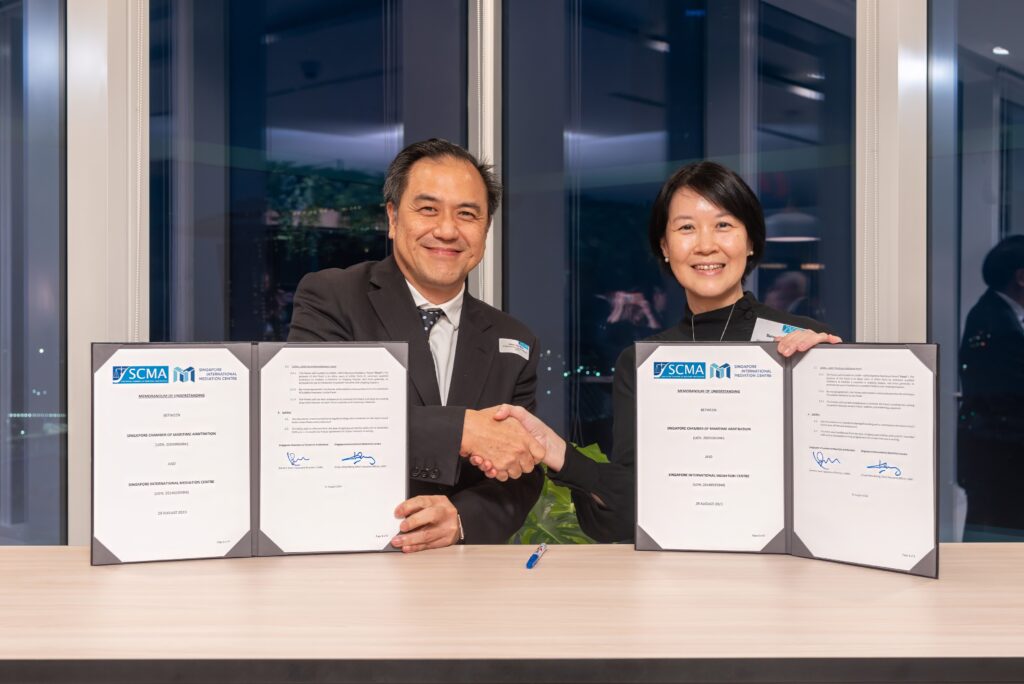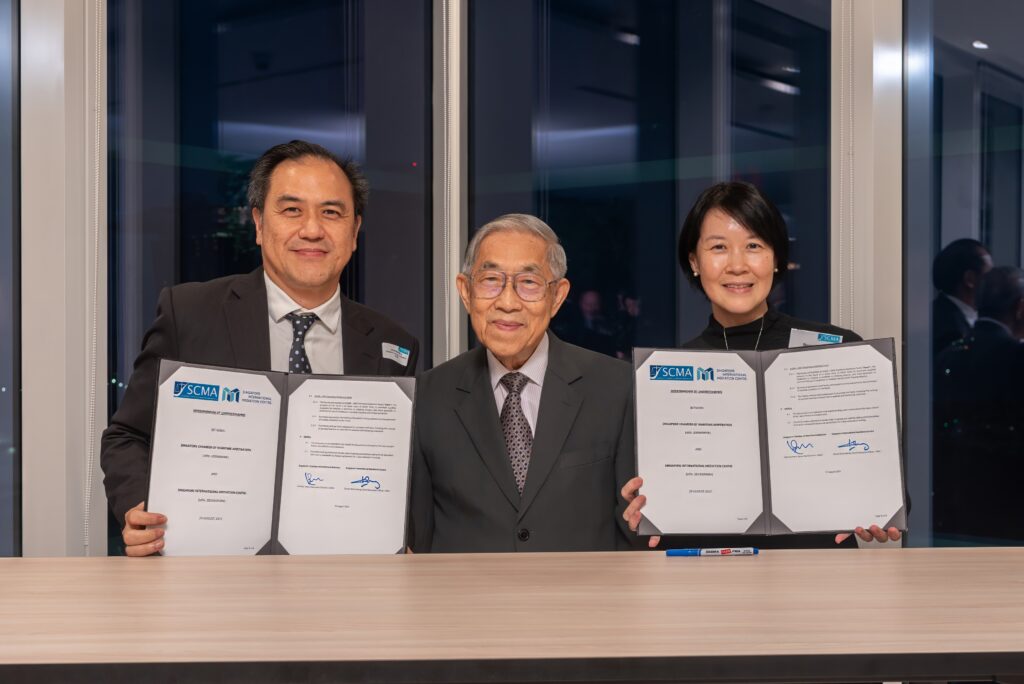The Singapore Chamber of Maritime Arbitration (SCMA) and the Singapore International Mediation Centre (SIMC) are proud to announce their collaboration in establishing the SCMA – SIMC Maritime Mediators Panel (Panel). The Panel aims to facilitate the nomination of qualified mediators for resolving maritime and shipping disputes, while also promoting the wider adoption of mediation in suitable cases within the maritime industry.
Mediation has emerged as a compelling alternative dispute resolution mechanism, offering parties an interest-based, cost-effective, and confidential method of resolving disputes amicably within the maritime industry. The collaboration between SCMA and SIMC will further strengthen Singapore’s position as a leading dispute resolution hub for the maritime and international trade industries.

Through the SCMA – SIMC Maritime Mediators Panel, both institutions will be able to nominate qualified mediators to facilitate the resolution of their maritime or shipping disputes. The institutions will develop criteria and guidelines for the admission of suitable mediators, ensuring the highest standards of professionalism and expertise in mediating maritime and trade disputes.
Mr. Chao Hick Tin SC, Chairman of the SCMA, expressed his optimism about the collaboration: “The establishment of the SCMA – SIMC Maritime Mediators Panel marks a significant first step in the development of mediation in relation to maritime disputes. Today’s complex disputes are rarely satisfactorily resolved by a singular, pre-agreed mode of dispute resolution. By combining the maritime expertise of SCMA with the international mediation expertise of SIMC, we aim to provide a unifying platform for resolving maritime disputes, providing the maritime community with options.”

Mr. Chuan Wee Meng, CEO of SIMC said: “At SIMC, we are excited to work together with SCMA on this initiative. Both centres will be able to contribute professionals with deep industry knowledge and extensive international experience to help parties resolve shipping-related disputes in an efficient manner, and more importantly, truly addressing the real interests of the parties in an effective way.”
